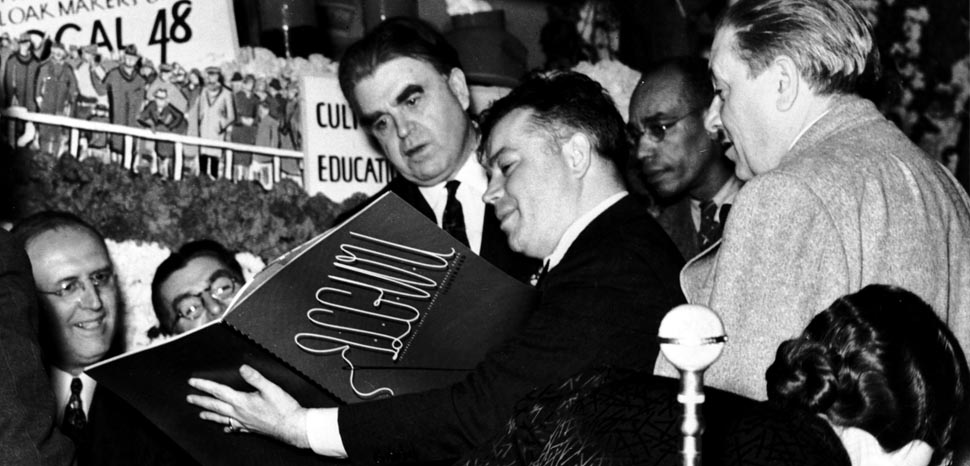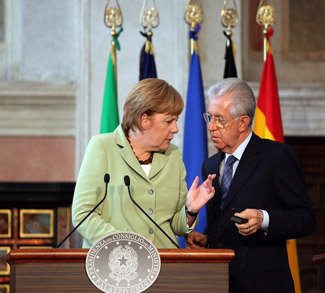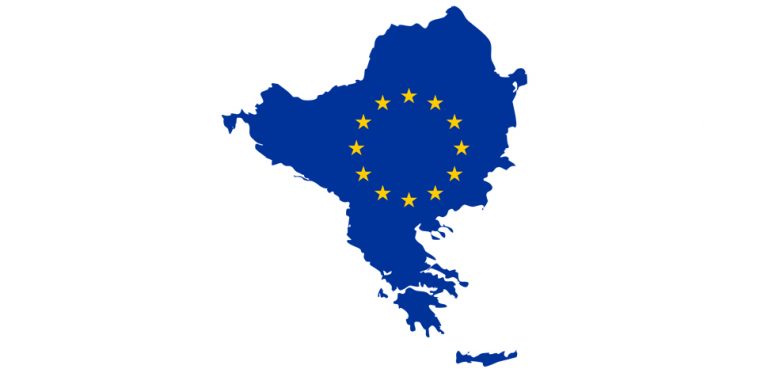Mid-July in Chicago is, by all accounts, anything but merciful, a reality that could not have been lost on President Roosevelt, even amidst the confusion of that year’s Democratic Convention. Yet clear to him, as it was to the nation, the threats that the young republic faced. By the time the nominating convention had convened, France had already fallen to the Nazis. The Battle of Britain, a contest of aerial supremacy over the British Isles between its inhabitants and the Germans, was still in its first week. The country faced a plethora of threats that were foreign; and unbeknownst to them at the time, one that was domestic.
As early as the late 1930s, Hitler’s government realized that unless they took preemptive action, at some point or another, the United States was going to get in the way of the Fuhrer’s plan to dominate Europe. With signs that President Roosevelt was inclined to support the Allies growing, the Nazis contacted wealthy U.S. oilman William Rhodes Davis with the intention to defeat President Roosevelt and orchestrate the election of a pro-Nazi candidate. At the time, it wasn’t such an unlikely goal. The Nazis had already used Davis to successfully ship cheap, Mexican oil to fuel the German war machine. Davis already had a sizeable influence in the party by making significant donations during the 1936 presidential election. He had traveled to Germany several times and even tried to bring German proposals to the attention of the White House. However, Roosevelt had assumed correctly that Davis had been compromised.
On this most recent excursion, the American had brought home with him from Germany a plot, devised and matured by none other than Luftwaffe head Hermann Goring himself. The German High Command had given Davis a budget of 5 million dollars, hidden away in the German embassy in Washington D.C., to fund a candidate of his choosing to defeat President Roosevelt and as a result, remove America as a threat to the Third Reich’s territorial ambitions. The men settled on labor leader John L. Lewis, a staunch opponent of FDR and unabashed non-interventionist. The plan, obviously, eventually fizzled due to lack of support and while Lewis launched a media campaign against the president using the funds allocated, its effect faded as the U.S. entered the war.
It has been over 70 years since Davis conspired with the Nazis to bring down American democracy, but it set a historical precedent for both future attempts and thereafter America’s typical response; which is, contrary to what many would like to think, to do nothing. Directly after the war, once the plot was uncovered, President Harry Truman ordered the Justice Department to keep quiet on the issue, for fear of international humiliation. It wasn’t until 1961 that the information became public knowledge.
Another attempt would come just two decades later; this time from Moscow. During the 1960 Democratic Party presidential primaries, two-time former nominee Adlai Stevenson was approached by Soviet ambassador Mikhail A. Menshikov with a proposition: intervene in the battle between Sen. John F. Kennedy and Sen. Lyndon B. Johnson for the nomination and take it himself. With Russian help of course. Luckily, Stevenson was appalled by the offer and turned it down on the spot, keeping the matter private for fear of repercussions for both him and the Democratic Party. It wasn’t until 1977 that a biographer read about the incident in Stevenson’s diary.
It’s important to remember the times when the interference wasn’t unsolicited. Leading up to his decision to challenge Reagan for the presidency in 1984, Sen. Edward Kennedy contacted Soviet General Secretary Andropov with an offer that flirted with treason: in return for Russian help with his potential White House run, he would travel to Moscow and help their propaganda team with new campaigns that would be more effective against America, as well as coach Soviet leaders on how to be more effective with Reagan’s administration during upcoming talks. Kennedy also wanted to connect Andropov with U.S. producers and TV moguls, so that he could personally make his case to the American people. There is no evidence Andropov ever took Kennedy’s offer seriously, and it mattered little considering the General Secretary would die and be replaced by Mikhail Gorbachev within months of the communique.
Foreign powers have tried to sway U.S. politics since the days of the founding fathers. In the 1790s, French minister Pierre-Auguste Adet bribed several senators to vote against the recently signed Jay Treaty. In fact, Adet actively campaigned in the United States for Vice President Thomas Jefferson during his presidential campaign. The Frenchmen believed that replacing President Adams with Jefferson would be in his nation’s best interest. As it turned out, he was right.
Not all outside pressures are so blatant about their devious motivations. Many of the same politicians in both parties who decry the attempts from Moscow to influence American voters take millions every year from lobbying groups focused on prioritizing countries like Israel or Saudi Arabia. The Guardian reported in February of 2019 that pro-Israeli lobbying groups had spent a total of 22 million dollars the previous year alone trying to convince Americans of the importance of supporting the Jewish state. What exactly is the difference between that and Russian meddling? Legality. From a moral perspective, there is no difference.
Russian interference in the 2016 U.S. presidential election, while unquestionably a matter of grave concern that shouldn’t be taken lightly, isn’t the least bit surprising. Since the end of the Cold War, the United States has become accustomed to the role of being the world’s sole superpower, a position that left its leaders too unsuspecting of the natural course of action that countries like China and Russia would inevitably take. Intervention in an opponent’s nation’s inner-politics isn’t at all unusual; America has done it for decades.
While on paper unacceptable, the interference of one country in another’s affairs is as normal as it is wrong. Perhaps the blame in all these instances lies with the American government, which in its arrogance and inability to heed history, has left the people open to attacks from foreign powers on the very system upon which their way of life is based. Who’s to blame: polio, or the kid’s parents who failed to properly vaccinate their child?
This all comes down to a question of standard, one which the United States has consistently failed to meet. And until Washington learns that they aren’t immune to the types of attacks they perpetrate on others, the legitimacy of national elections will continue to be at best, questionable.
The views expressed in this article are those of the author alone and do not necessarily reflect Geopoliticalmonitor.com or any institutions with which the author is associated.




